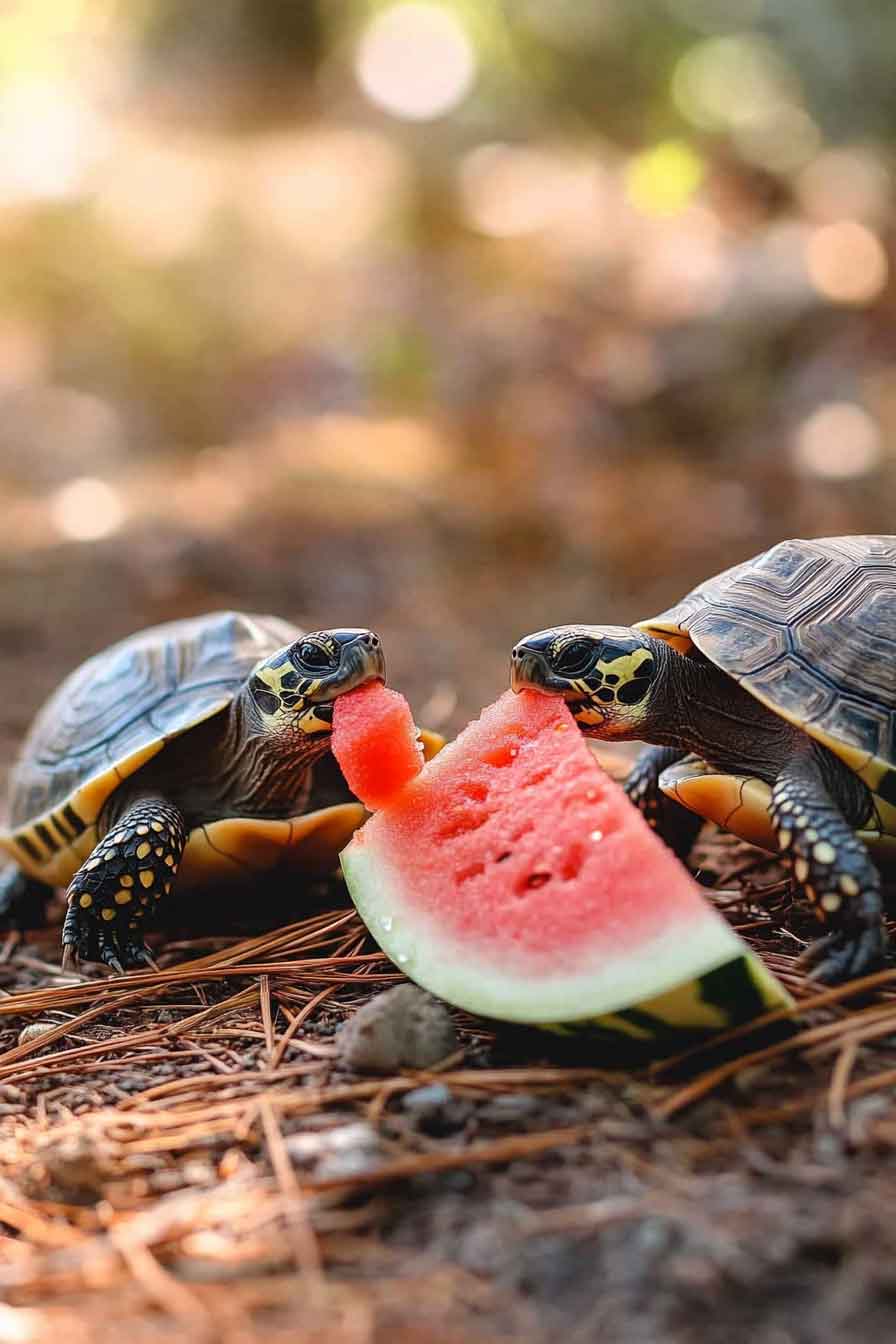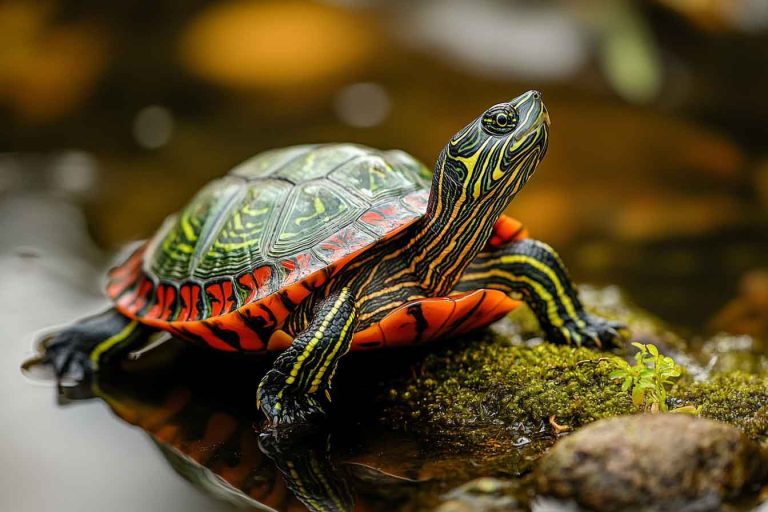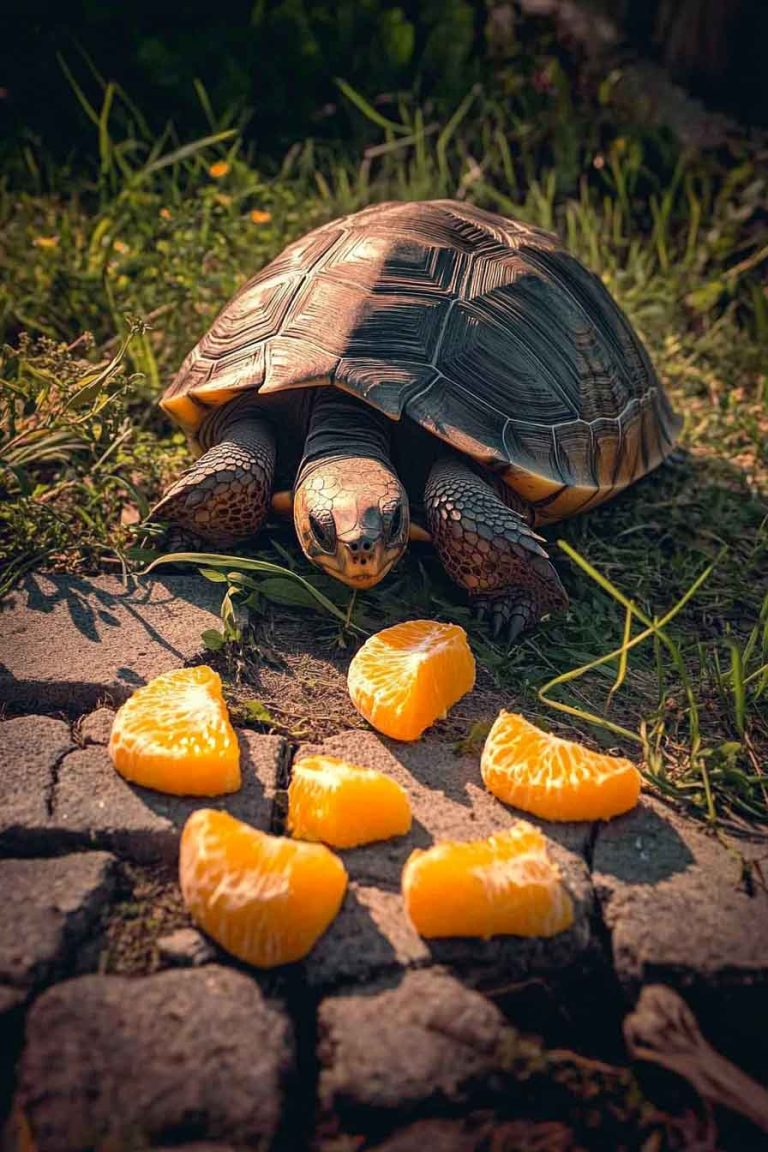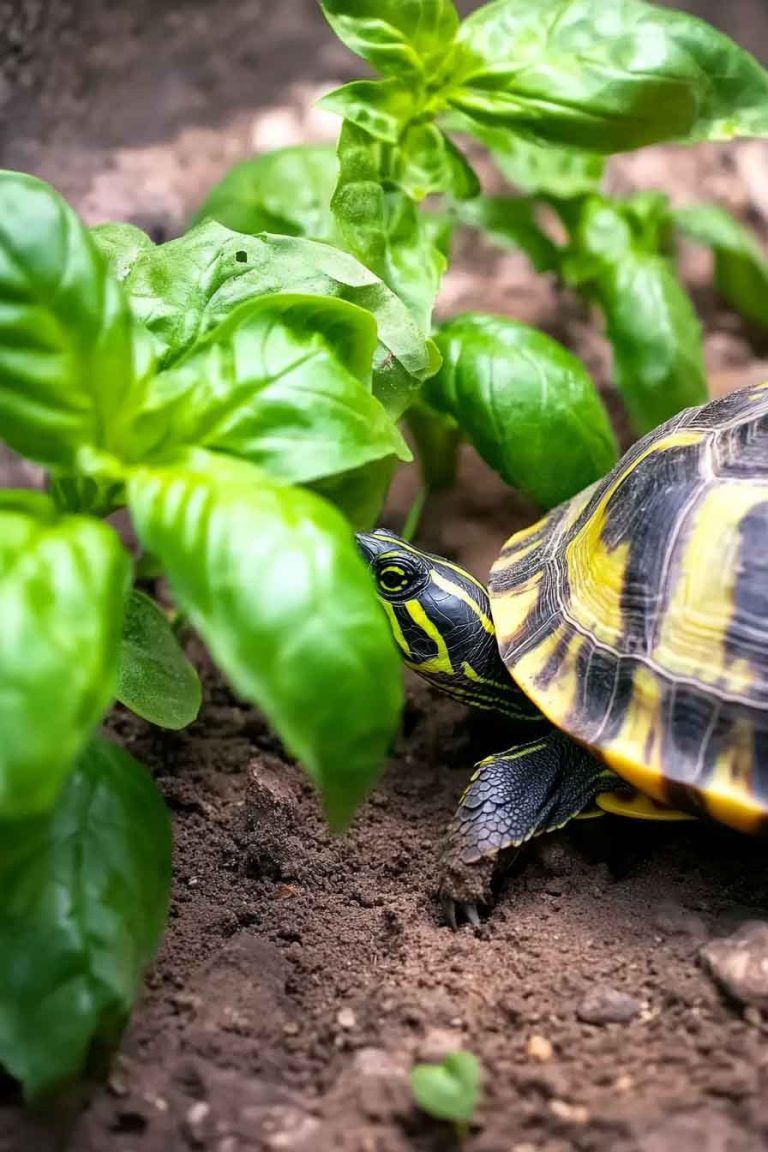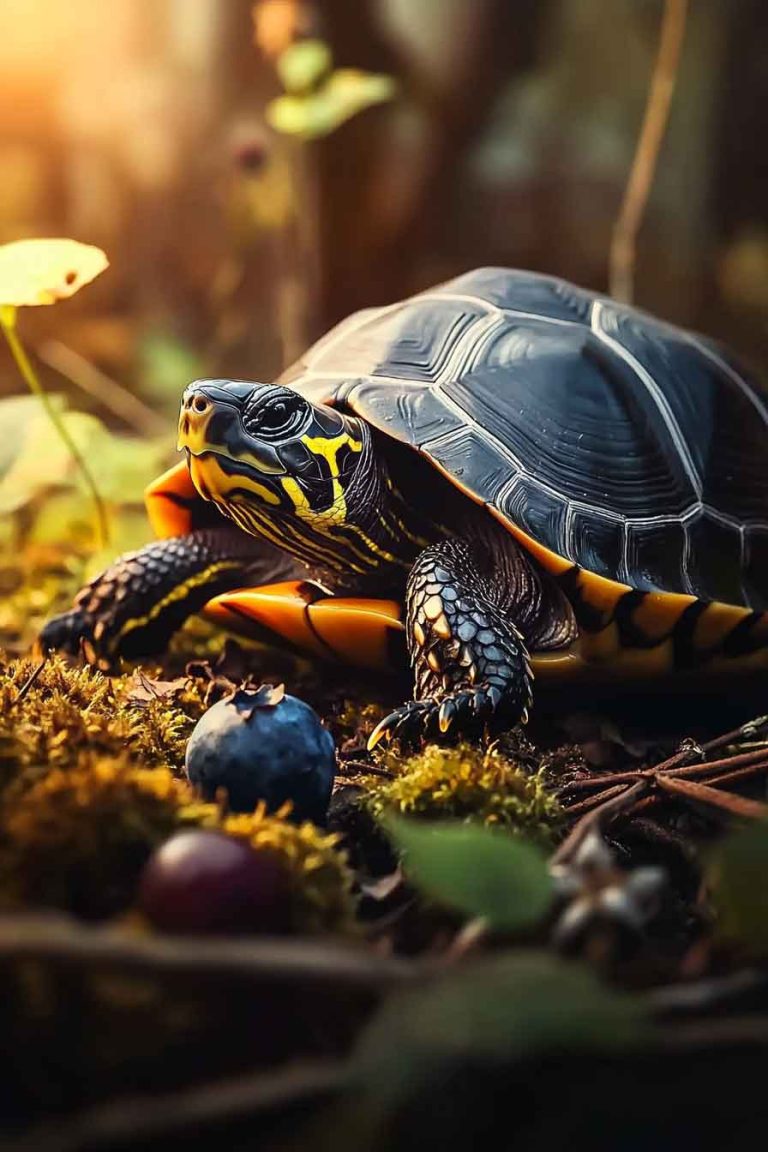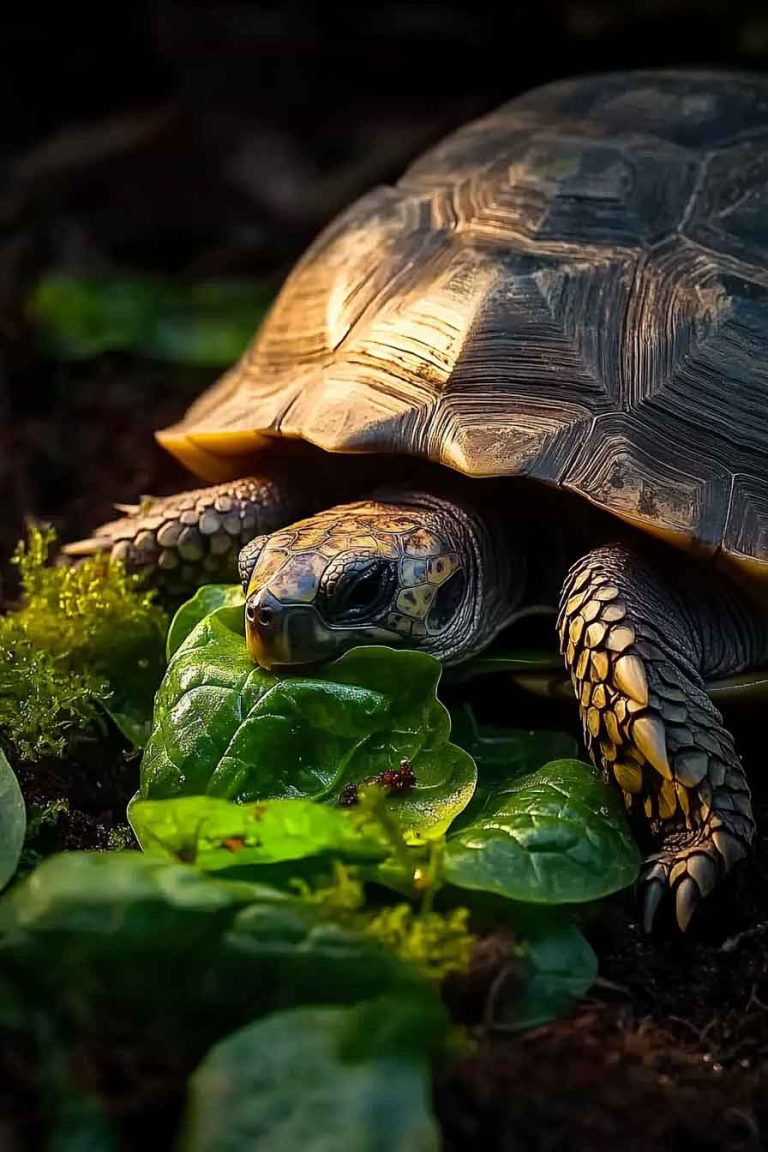Can Turtles Eat Watermelon? Don’t Feed It Before Reading This
If you’re a turtle owner like me, you’ve probably found yourself wondering whether you can share some of your favorite summer treats with your shelled companion. Watermelon, with its refreshing sweetness and high water content, seems like it could be a perfect snack for turtles. But is it safe? So, can turtles eat watermelon? The…
If you’re a turtle owner like me, you’ve probably found yourself wondering whether you can share some of your favorite summer treats with your shelled companion. Watermelon, with its refreshing sweetness and high water content, seems like it could be a perfect snack for turtles. But is it safe?
So, can turtles eat watermelon? The answer is yes – turtles can eat watermelon in moderation. Watermelon is generally safe for most turtle species and can provide hydration and some nutrients. However, like all treats, it should only be given occasionally and in small portions as part of a balanced diet.
In this comprehensive guide, I’ll walk you through everything you need to know about feeding watermelon to your turtle, including the benefits, risks, and proper serving methods. Keep reading to ensure you’re giving your turtle the best care possible.
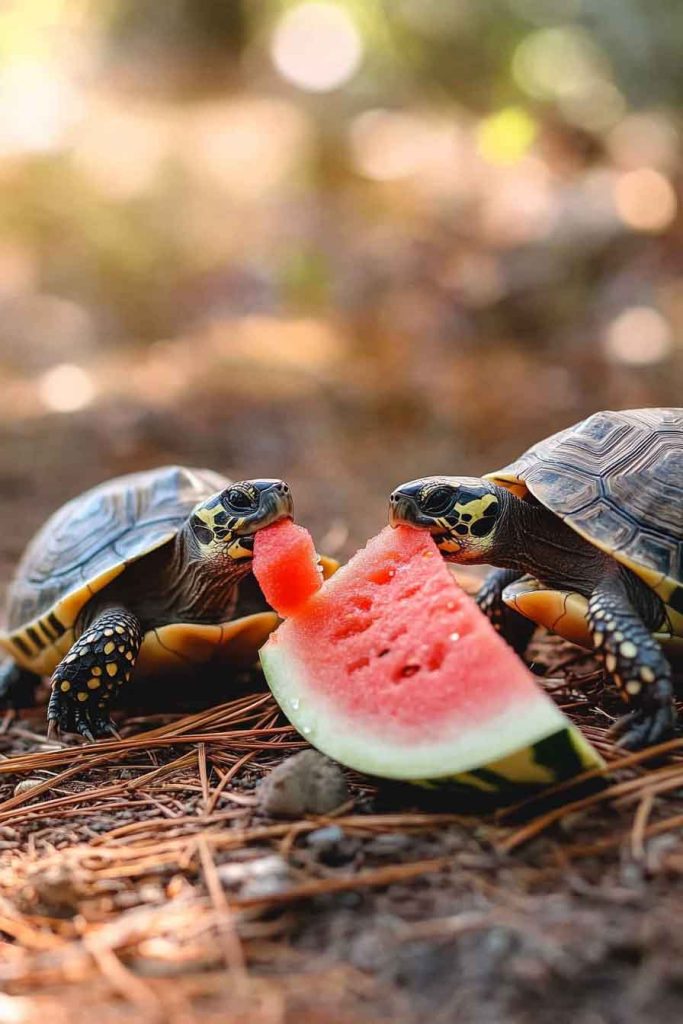
Can You Feed Watermelon To Your Pet Turtle?
The short answer is yes, but with important considerations. As a turtle enthusiast who’s cared for these amazing creatures for years, I can tell you that watermelon can be a refreshing occasional treat for most turtle species. However, understanding the nutritional content and proper serving methods is crucial.
Let’s examine the nutritional profile of watermelon per 100 grams:
Carbohydrates: 7.55 g
Sugar: 6.2 g
Protein: 0.6 g
Calcium: 7 mg
Phosphorus: 11 mg
Vitamin C: 8.1 mg
Vitamin A: 569 IU
Potassium: 112 mg
Magnesium: 10 mg
Water content: 91.45 g
Looking at these numbers, I can see why watermelon appeals to turtles. The high water content (over 91%) makes it an excellent source of hydration, especially during hot summer months. However, the sugar content at 6.2g per 100g means this should definitely be an occasional treat rather than a regular food item.
The calcium to phosphorus ratio in watermelon is approximately 1:1.6, which isn’t ideal for turtles who need a 2:1 calcium to phosphorus ratio. This is why I always recommend watermelon as a treat rather than a dietary staple.
Do Turtles Like Watermelon?
In my experience, most turtles absolutely love watermelon! The sweet taste and high water content make it an appealing snack for many species. I’ve watched my own turtles eagerly approach watermelon pieces, and their enthusiasm is quite obvious.
However, individual preferences vary. Some turtles might be more interested in the flesh, while others might explore the rind. The key is observing your turtle’s preferences and ensuring they’re eating it safely.
Health Benefits of Watermelon for Turtles
When given appropriately, watermelon can offer several benefits:
Hydration
The most significant benefit is hydration. With over 91% water content, watermelon can help keep your turtle properly hydrated, especially important for species that might not drink enough water on their own.
Vitamin Content
Watermelon contains vitamin A, which supports healthy vision and immune function in turtles. The vitamin C content, while turtles can synthesize their own vitamin C, can still provide some antioxidant benefits.
Enrichment
Offering variety in your turtle’s diet provides mental stimulation and enrichment. Watching a turtle interact with new foods can be quite entertaining and beneficial for their well-being.
Can Turtles Eat Watermelon Rind?
This is a question I get frequently from fellow turtle owners. Can turtles eat watermelon rind? The answer is yes, but with caution. The rind is actually lower in sugar than the flesh, making it potentially better from a nutritional standpoint.
However, I always recommend thoroughly washing the watermelon and removing any traces of pesticides or chemicals from the rind. The rind should be cut into appropriate sizes to prevent choking, and you should remove the tough outer green skin, offering only the white and light green parts of the rind.
Some of my turtles actually prefer the rind to the flesh because of its firmer texture, which gives them something to work on with their beaks.
Can Turtles Eat Watermelon Seeds?
When it comes to watermelon seeds, I exercise more caution. Can turtles eat watermelon seeds? Small, soft seeds from seedless watermelons are generally not harmful if consumed in small quantities. However, large, hard seeds from seeded varieties can pose a choking hazard or cause digestive blockages.
My recommendation is to always remove seeds before offering watermelon to your turtle. It’s better to be safe than sorry, and removing seeds takes only a few extra minutes of preparation.
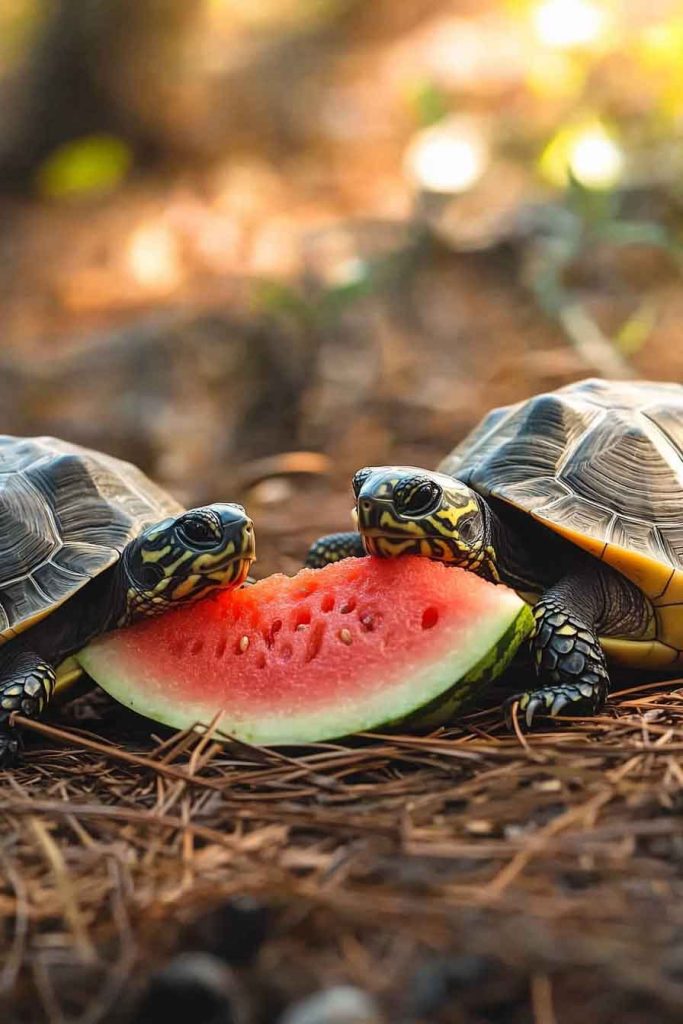
Can Turtles Eat Watermelon Juice?
Regarding watermelon juice, I don’t recommend offering store-bought watermelon juice to turtles. Commercial juices often contain added sugars, preservatives, and other additives that aren’t suitable for turtles.
If you want to offer watermelon juice, make it fresh by blending watermelon flesh and straining it. However, even fresh watermelon juice concentrates the sugars, so I prefer offering fresh watermelon pieces instead. The whole fruit provides fiber and makes the turtle work for their treat, which is more natural and beneficial.
Health Risks and Considerations
While watermelon is generally safe, there are several risks to consider:
High Sugar Content
The primary concern with watermelon is its sugar content. Too much sugar can lead to digestive upset, diarrhea, and long-term health issues. I’ve seen turtles develop soft stools when given too much sweet fruit.
Calcium Imbalance
The improper calcium to phosphorus ratio means that regular consumption could contribute to calcium deficiency over time. This is why I stress that watermelon should only be an occasional treat.
Overhydration
While rare, excessive watermelon consumption could theoretically lead to overhydration, especially in smaller turtle species.
Digestive Upset
Some turtles may experience digestive issues if introduced to watermelon too quickly or in large quantities. I always recommend starting with tiny pieces to see how your turtle responds.
How Much Watermelon Should Turtles Eat?
This is perhaps the most important question. The amount depends on your turtle’s size and species, but I follow these general guidelines:
- Large turtles (6+ inches): 1-2 small cubes (about 1 inch each) once or twice per week maximum
- Medium turtles (3-6 inches): 1 small cube or a few small pieces once per week
- Small turtles (under 3 inches): Tiny pieces, less than half an inch, once per week or less
Remember, treats should never make up more than 10% of your turtle’s total diet. The majority should still consist of species-appropriate vegetables, proteins, and commercial turtle food.
Can You Feed Watermelon to Baby Turtles?
I’m often asked about feeding watermelon to baby turtles. While it’s not toxic, I generally recommend waiting until baby turtles are well-established on their regular diet before introducing treats like watermelon.
Baby turtles need consistent, nutrient-dense foods to support their rapid growth. Their calcium and protein needs are much higher than adult turtles, so their diet should focus on appropriate commercial foods and suitable vegetables rather than sugary treats.
If you do choose to offer watermelon to a juvenile turtle, make it an extremely rare treat and ensure the pieces are appropriately sized to prevent choking.
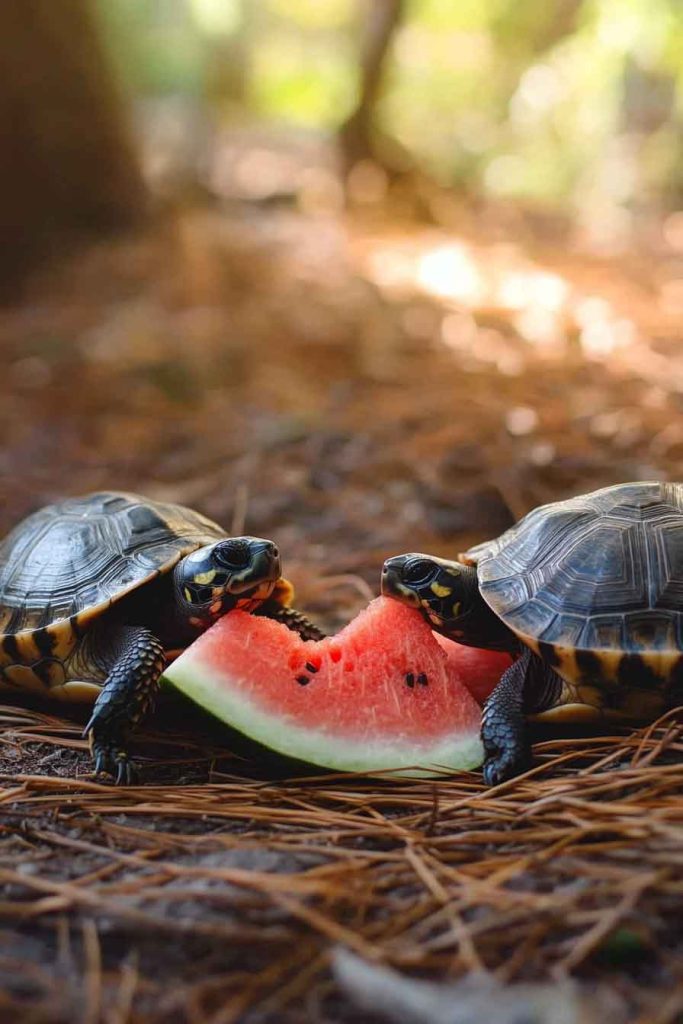
Proper Way to Serve Watermelon to Turtles
Based on my experience, here’s the best way to prepare watermelon for your turtle:
- Choose organic when possible to minimize pesticide exposure
- Wash thoroughly even if you’re removing the rind
- Remove all seeds to prevent choking hazards
- Cut into appropriate sizes – pieces should be no larger than the space between your turtle’s eyes
- Offer at room temperature rather than cold from the refrigerator
- Remove uneaten portions after a few hours to prevent spoilage
Species-Specific Considerations
Different turtle species have varying dietary needs:
Box Turtles
Box turtles are omnivores and can enjoy watermelon as an occasional treat. Their varied diet makes them more adaptable to different foods.
Red-Eared Sliders
Red-eared sliders can have watermelon occasionally, but their diet should primarily consist of aquatic vegetation and proteins. The high sugar content makes moderation especially important.
Painted Turtles
Painted turtles can enjoy small amounts of watermelon, but like other semi-aquatic species, their diet should focus on aquatic plants and appropriate proteins.
Tortoises
Many tortoise species can enjoy watermelon, but Mediterranean species should have it very rarely due to their low-sugar dietary requirements.
Alternatives to Watermelon
If you want to offer your turtle variety without the high sugar content of watermelon, consider these alternatives:
- Cucumber (high water content, low sugar)
- Bell peppers (vitamin-rich, crunchy texture)
- Squash (nutritious and turtle-friendly)
- Leafy greens (essential for most species)
- Berries in tiny amounts (still sugary but more nutrient-dense)
Signs of Overindulgence
Watch for these signs that your turtle may have had too much watermelon:
- Soft or watery stools
- Loss of appetite for regular foods
- Lethargy or unusual behavior
- Begging behavior for more sweet foods
If you notice any of these signs, discontinue watermelon and return to your turtle’s regular diet.
Frequently Asked Questions (FAQs)
Can Box Turtles Eat Watermelon?
Yes, box turtles can eat watermelon in moderation. As omnivores, they’re well-suited to handle occasional fruit treats, but the same portion control guidelines apply.
Can Red-Eared Slider Turtles Eat Watermelon?
Red-eared sliders can have watermelon as an occasional treat. However, their primarily aquatic diet means watermelon should be even more limited to prevent digestive issues.
Can Painted Turtles Eat Watermelon?
Painted turtles can enjoy small amounts of watermelon occasionally. Their semi-aquatic nature means they benefit more from aquatic vegetation, so keep watermelon as a rare treat.
Can Tortoises Eat Watermelon?
Most tortoises can have watermelon occasionally, but Mediterranean species should have it very rarely due to their specialized low-sugar dietary needs.
Is Watermelon Rind Better Than the Flesh?
In some ways, yes. The rind contains less sugar and more fiber, making it potentially better nutritionally. However, proper preparation is essential.
Conclusion
Watermelon can be a refreshing and enjoyable treat for your turtle when offered appropriately. The key is moderation – understanding that while watermelon isn’t harmful in small amounts, it should never replace the nutritious, species-appropriate foods that form the foundation of your turtle’s diet.
As someone who’s spent years caring for turtles, I can tell you that watching your turtle enjoy a special treat like watermelon can be incredibly rewarding. Just remember to prioritize their long-term health over short-term enjoyment.
Whether you’re wondering about watermelon flesh, rind, seeds, or juice, the answer is always the same: moderation and preparation are key. Your turtle will be healthiest with a varied diet that consists primarily of appropriate vegetables, proteins, and commercial foods, with watermelon serving as an occasional special treat.
By following the guidelines I’ve shared in this article, you can safely incorporate watermelon into your turtle’s diet while ensuring they remain healthy and happy for years to come.

